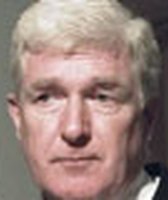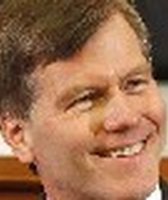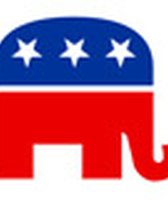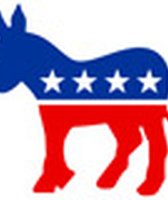Stand up for the facts!
Our only agenda is to publish the truth so you can be an informed participant in democracy.
We need your help.
I would like to contribute

Minority Leader Ward Armstrong was upset to learn the SCC gave him the wrong number.
House Minority Leader Ward Armstrong was sure his figures were right when he said electricity rates for customers of Appalachian Power Company went up 90 percent from 2007 to 2009.
His information came from the State Corporation Commission, which oversees rate cases for utility companies in Virginia. Armstrong, D-Henry, stuck with that figure even when Appalachian executives told him last week it was wrong.
But after inquiries by PolitiFact Virginia on Thursday, the SCC acknowledged that it had given Armstrong incorrect data. Rates actually had climbed about 33 percent from 2007 to 2009, not 90 percent.
The data was the crux of Armstrong’s effort to give the SCC a greater say in regulating Appalachian’s rates. His bills were killed Tuesday by a House Commerce and Labor subcommittee after a hearing at which Armstrong heatedly defended his calculations. Those numbers were first questioned at a January 20 hearing of the Commission on Electric Utility Regulation, which includes members of the state Senate and House of Delegates.
The SCC’s staff called Thursday to inform him of the error and apologize for the mistake, according to Armstrong and Ken Schrad, the commission’s spokesman.
Armstrong was angry when he learned the numbers were wrong. "If the utility industry stands up and says your figures are wrong, we tend to disagree with them," he said. "The figures we got we didn’t make up. We got them from the State Corporation Commission."
The SCC used information from the Edison Electric Institute, a power industry association, to track Appalachian’s rates from 1995 to 2009. The SCC gave Armstrong and his staff a 2007 price of 4.84 cents per kilowatt hour, which would have made the company’s electricity cheaper than the average price in any state that year.
When PolitiFact Virginia noticed the 2007 rate was far below other rates for Appalachian customers in the past decade and contacted EEI to confirm the data, the group said the correct Appalachian rate was 6.93 cents per kilowatt hour. That was still cheaper than the average price in Virginia and nationally, but much higher than the SCC had reported. PolitiFact Virginia then contacted the SCC to verify they had used the correct data, leading to the discovery of the error.
An SCC spokesman acknowledged that analysts reported only one of the costs contained in a monthly electricity bill. Utilities include three separate charges in a residential bill: generation, transmission and distribution.
Generation is the production of power, whether at a coal-fired plant, nuclear power plant or a wind turbine. Transmission is the shipment of electricity along high-voltage lines from the power plant to a local transformer station, where the high-voltage power is converted to a lower voltage. The final step, distribution, is when the power goes from the substation to a home or office.
Schrad, of the SCC, said staff at the commission mistakenly listed the generation cost, not total cost, when calculating Appalachian’s 2007 rate.
Armstrong has been battling with Virginia utility companies for more than a year.
His constituents are angry over rising electricity bills from Appalachian. The delegate responded this winter by introducing legislation that would return electric utilities to rate-setting rules that existed before the state took a stab at electricity deregulation in 1999.
Armstrong, who is exploring a 2013 run for statewide office, set up a work group that studied Virginia electric rates and released a report earlier this month that included the incorrect figure for Appalachian’s rate increase.
Armstrong still says Appalachian needs more regulation, though he acknowledges the increase was smaller than he believed. "Thirty-three percent is still a big increase," he said.
Our Sources
Electric utility regulatory work group, Investor owned electric utility regulation in Virginia, accessed Jan. 24, 2011.
The Roanoke Times, Bill on regulation of utilities shut down, Jan. 25, 2011.
Interview with Claire Wilker, Del. Ward Armstrong’s chief of staff, Jan. 26, 2011.
Interview with Hullihen Moore, former member of State Corporation Commission, Jan. 26, 2011.
Interview with Cast Bielski, regulatory and rate expert, Edison Electric Institute, Jan. 26, 2011.
Interview with Jim Owen, spokesman, Edison Electric Institute, Jan. 25, 2011.
Interview with Julie Rautio, Capital Results, Jan. 25, 2011.
Hearing by the Committee on Commerce and Labor, Subcommittee on Energy, Jan. 25, 2011.

















































